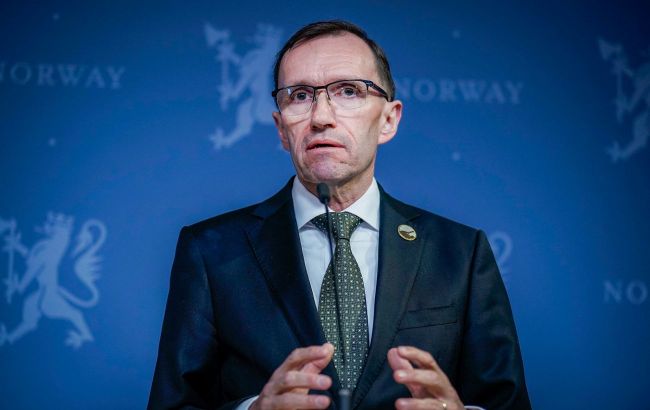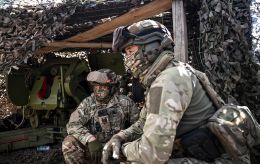Sanctions tightened: Norway targets Russia’s shadow fleet and drone supplies
 Photo: Norwegian Foreign Minister Espen Barth Eide (Getty Images)
Photo: Norwegian Foreign Minister Espen Barth Eide (Getty Images)
Norway has joined the EU’s 17th package of sanctions against Russia and introduced new restrictions, which came into effect on Friday, June 27, according to the official website of the Norwegian government.
The sanctions list includes 189 vessels from Russia’s so-called shadow fleet, which are used to bypass restrictions, as well as 17 individuals and 58 companies involved in supplying drones, weapons, ammunition, military equipment, key components, and logistical support to the Russian military-industrial complex.
"Sanctions are a signal that Norway and the EU continue to exert pressure on Russia. The 17th package strikes even harder at the Russian economy and military capability, particularly by doubling the number of vessels designated as part of the shadow fleet. This is an important contribution to Europe’s collective pressure on Russia’s illegal war of aggression," said Norwegian Foreign Minister Espen Barth Eide.
An additional 31 legal entities have been added to the export control list and are now subject to stricter restrictions on the supply of certain goods. These entities are considered end users of military products, are part of Russia’s defense-industrial base, or have ties to the country’s defense and security sectors. The list of prohibited goods and technologies for export has also been expanded.
New sanctions against Russia
Leaders of the European Union, the United Kingdom, and several other European countries are planning to ban companies from cooperating with two Chinese banks that have allegedly helped Russia circumvent existing trade sanctions.
These restrictions may be included in the proposed 18th package of EU sanctions, aimed at increasing pressure on Moscow to achieve a swift ceasefire and initiate peace negotiations. The European Commission is expected to present the new sanctions package by the end of June, with approval from all member states anticipated ahead of the Brussels summit on June 26.
At the same time, according to some media reports, the 18th package is considered one of the toughest since the start of Russia’s full-scale invasion, and its adoption may face challenges.
It is also known that in early April, US senators from both the Republican and Democratic parties proposed a bill to introduce harsh sanctions against Russia in response to its refusal to pursue a long-term peace with Ukraine.

